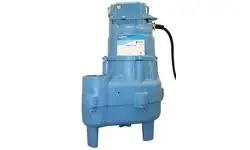Portuguese
- Afrikaans
- Albanian
- Amharic
- Arabic
- Armenian
- Azerbaijani
- Basque
- Belarusian
- Bengali
- Bosnian
- Bulgarian
- Catalan
- Cebuano
- Corsican
- Croatian
- Czech
- Danish
- Dutch
- English
- Esperanto
- Estonian
- Finnish
- French
- Frisian
- Galician
- Georgian
- German
- Greek
- Gujarati
- Haitian Creole
- hausa
- hawaiian
- Hebrew
- Hindi
- Miao
- Hungarian
- Icelandic
- igbo
- Indonesian
- irish
- Italian
- Japanese
- Javanese
- Kannada
- kazakh
- Khmer
- Rwandese
- Korean
- Kurdish
- Kyrgyz
- Lao
- Latin
- Latvian
- Lithuanian
- Luxembourgish
- Macedonian
- Malgashi
- Malay
- Malayalam
- Maltese
- Maori
- Marathi
- Mongolian
- Myanmar
- Nepali
- Norwegian
- Norwegian
- Occitan
- Pashto
- Persian
- Polish
- Portuguese
- Punjabi
- Romanian
- Russian
- Samoan
- Scottish Gaelic
- Serbian
- Sesotho
- Shona
- Sindhi
- Sinhala
- Slovak
- Slovenian
- Somali
- Spanish
- Sundanese
- Swahili
- Swedish
- Tagalog
- Tajik
- Tamil
- Tatar
- Telugu
- Thai
- Turkish
- Turkmen
- Ukrainian
- Urdu
- Uighur
- Uzbek
- Vietnamese
- Welsh
- Bantu
- Yiddish
- Yoruba
- Zulu
Telephone: +86 13120555503
Email: frank@cypump.com
Dez . 03, 2024 17:39 Back to list
sump pump for septic tank
Understanding Sump Pumps for Septic Tanks An Essential Guide
When it comes to managing residential waste, septic systems are a popular solution for homes not connected to municipal sewer lines. These self-contained waste treatment systems rely on a combination of natural processes to break down and treat sewage before it is released into the ground. However, one critical component that often goes unnoticed is the sump pump. This article will provide a comprehensive overview of sump pumps for septic tanks, explaining their function, importance, and maintenance.
What is a Sump Pump?
A sump pump is a device used to remove excess water from a sump pit, a basin that accumulates water, typically found in basements, crawl spaces, or septic systems. For septic tanks, the sump pump plays a crucial role in ensuring that wastewater is effectively managed. It helps to transfer effluent from the septic tank to the drain field, avoiding backups and potential flooding.
The Importance of Sump Pumps in Septic Systems
1. Preventing Flooding One of the primary functions of a sump pump in a septic system is to prevent flooding. During heavy rainfalls or snowmelt, groundwater levels can rise, potentially overwhelming the septic system. A sump pump prevents water from accumulating and ensures that the effluent is actively pumped out to the drain field, maintaining the system's functionality.
2. Maintaining System Efficiency By removing excess water, sump pumps help maintain the proper conditions within a septic system. When too much water enters the septic tank, it can dilute the sewage, disrupting the anaerobic processes that break down waste. By keeping water levels in check, a sump pump ensures efficient wastewater treatment.
3. Extending System Lifespan Regular use of a sump pump can extend the lifespan of a septic system. By preventing water accumulation and subsequent pressure on the system, sump pumps help to reduce wear and tear, minimizing the need for costly repairs or replacements.
Selecting the Right Sump Pump
When choosing a sump pump for a septic tank, several factors should be considered
sump pump for septic tank

1. Capacity The pump's capacity should be appropriate for the volume of wastewater it needs to handle. This includes factors such as the household size and the average water usage. It's advisable to consult with a professional to determine the right size for your specific needs.
2. Type of Pump There are two main types of sump pumps submersible and pedestal. Submersible pumps are installed underwater in the sump pit and are ideal for space-saving. Pedestal pumps, on the other hand, are located above the sump pit and are easier to access for maintenance.
3. Quality and Durability Look for pumps made from durable materials that can withstand the harsh conditions of a septic system. Stainless steel or thermoplastic pumps are popular choices due to their corrosion resistance and longevity.
Maintenance of Sump Pumps
To ensure the reliable operation of a sump pump, regular maintenance is crucial. Here are some tips
1. Routine Inspections Regularly inspect the sump pump for any signs of wear or damage. Check the power source, float switch, and discharge pipe to ensure everything is functioning smoothly.
2. Test the Pump Periodically test the sump pump by pouring water into the sump pit to activate it. This helps verify that the pump operates correctly and the float switch engages as it should.
3. Clean the Pit Keep the sump pit clear of debris, sediment, and blockages. A clean sump pit ensures that the pump has the space it needs to operate efficiently.
Conclusion
In conclusion, a sump pump is an indispensable component of a septic system. It plays a vital role in preventing flooding, maintaining system efficiency, and extending the lifespan of the entire waste management setup. By selecting the right pump and maintaining it properly, homeowners can ensure the smooth functioning of their septic systems for years to come. Understanding the importance of sump pumps can ultimately lead to a more efficient, trouble-free home waste management experience.
-
ISG Series Pipeline Pump - Chi Yuan Pumps | Energy Efficiency&Compact Design
NewsAug.03,2025
-
ISG Series Vertical Pipeline Pump - Chi Yuan Pumps Co., LTD.|High Efficiency, Low Noise, Durable
NewsAug.02,2025
-
ISG Series Vertical Pipeline Pump - Chi Yuan Pumps | High Efficiency, Low Noise
NewsAug.02,2025
-
ISG Series Vertical Pipeline Pump- Chi Yuan Pumps Co., LTD.|High Efficiency&Compact Design
NewsAug.02,2025
-
Heavy-Duty Mining Sludge Pumps - Wear-Resistant Slurry Handling
NewsAug.02,2025
-
Horizontal Split Case Pump with GPT-4 Turbo | High Efficiency
NewsAug.01,2025










